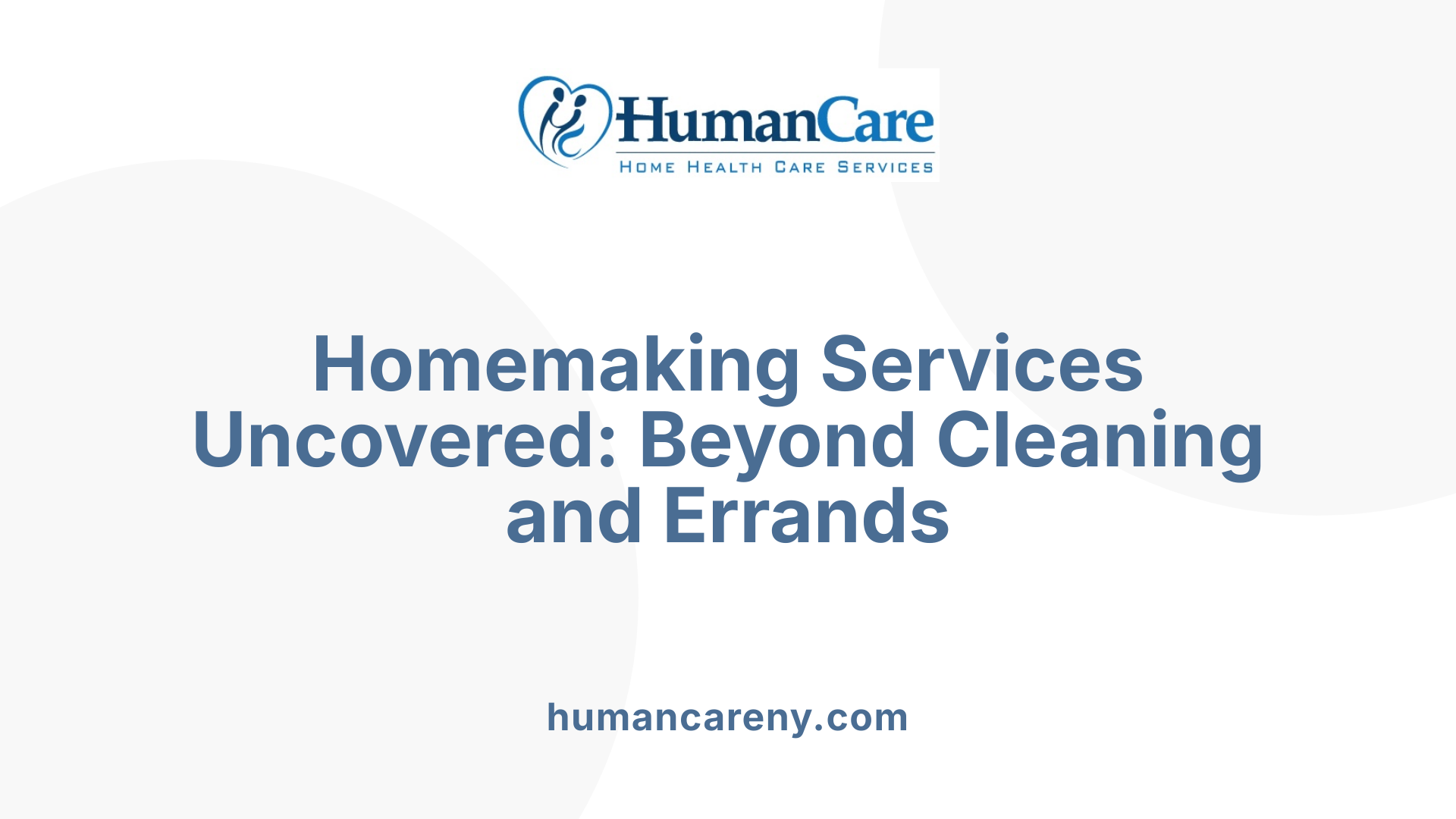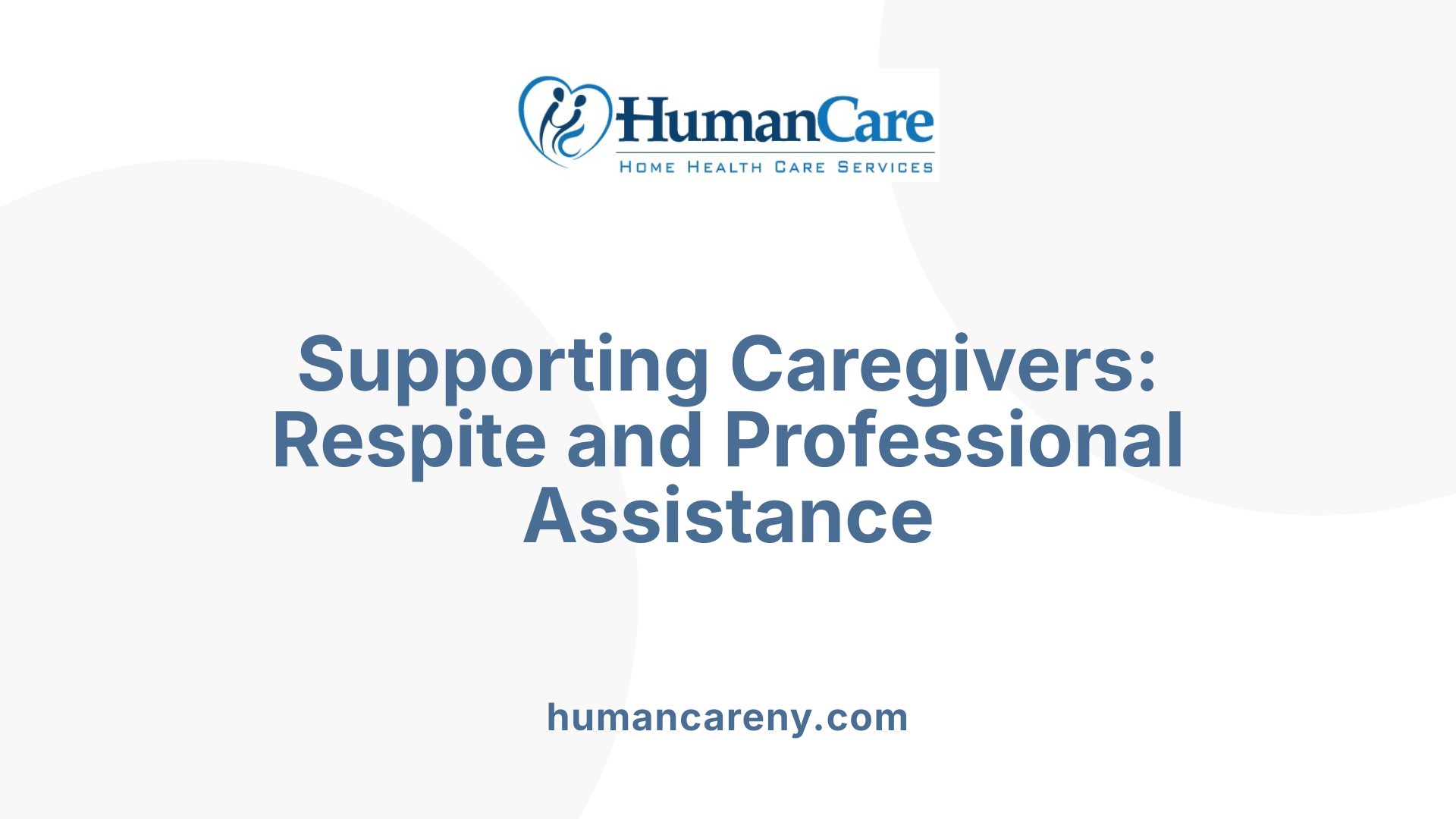The Growing Need for Homemaking Services Among Older Adults
As the population ages, many seniors express a strong preference to remain in their homes, surrounded by familiar comforts and memories. Homemaking services play a vital role in helping older adults maintain independence, safety, and a high quality of life. These services go beyond basic housekeeping, providing individualized support that addresses both physical and emotional needs, enabling seniors to age in place with dignity and comfort.
Understanding Homemaking Services: Beyond Basic Housekeeping

What Are Homemaking Services?
Homemaking services encompass a variety of non-medical tasks aimed at helping individuals maintain a safe, comfortable, and healthy living environment. These include everyday activities such as cleaning, meal preparation, running errands, and light housekeeping duties like laundry.
What Range of Tasks Do Homemaking Services Cover?
Beyond household chores, homemaking services also include personal care support and companionship. Personal care involves assistance with activities of daily living (ADLs) such as bathing, grooming, dressing, and medication reminders. Companionship services provide emotional support and social interaction, which are essential for mental and emotional well-being.
How Have Homemaking Services Evolved?
What started as basic housekeeping has expanded significantly. Homemaking services now support recovery from surgeries, chronic illnesses, and the overall independence of seniors and individuals with health challenges. They play a critical role in enabling people to live independently at home rather than moving to institutional care.
How Are Homemaking Services Tailored to Individual Needs?
These services are personalized based on each client’s specific requirements, preferences, and routines. Care plans are developed to adapt to varying levels of assistance needed, ensuring clients receive the right support without compromising their independence or dignity. This individualization fosters trust and improves clients' quality of life remarkably.
Promoting Independence and Safety at Home
How Do Homemaker Services Assist with Activities of Daily Living (ADLs)?
Homemaker services provide vital help with everyday activities including bathing, dressing, grooming, and medication reminders. These supports help seniors maintain their independence while ensuring personal care needs are met safely and respectfully. Assistance with these ADLs helps individuals manage their health and personal hygiene, which can otherwise become challenging with age or illness.
What Routine Household Tasks Are Included?
Beyond personal care, homemaker services regularly address household chores such as laundry, grocery shopping, meal preparation, and light housekeeping. These tasks allow seniors to continue living comfortably in their own homes without the overwhelming burden of managing all household duties alone.
How Do Homemakers Create a Safer Home Environment?
Routine housekeeping and home maintenance by trained caregivers reduce hazards like clutter and spills that lead to falls or accidents. By actively managing household upkeep, homemaker services minimize health risks and help seniors navigate their living spaces securely.
How Do These Services Support Independence and Dignity?
By providing personalized, respectful assistance, homemaker services enable seniors to sustain daily routines and personal freedoms. This support not only fosters confidence and self-esteem but also reduces the need for institutional care, allowing individuals to age in place with dignity and comfort.
| Support Area | Services Included | Impact on Senior Independence and Safety |
|---|---|---|
| Activities of Daily Living (ADLs) | Bathing, dressing, grooming, medication reminders | Maintains health and self-care ability, promotes dignity |
| Household Tasks | Laundry, shopping, meal prep, light housekeeping | Eases physical burden, creates comfortable, manageable living environment |
| Home Environment Safety | Clutter removal, hazard reduction, fall prevention | Prevents accidents, reduces hospital visits, enhances mobility |
| Emotional & Social Well-being | Companionship, tailored care | Encourages social interaction, reduces loneliness, supports mental health |
Emotional and Social Benefits of Homemaker Companionship

How does homemaker companionship combat loneliness and social isolation?
Homemaker services provide companionship that is vital in reducing loneliness and social isolation among seniors. Regular social interaction with caregivers during home visits offers meaningful engagement that many elderly individuals might otherwise lack, helping to alleviate feelings associated with isolation.
What emotional support and psychological benefits do homemaker services offer?
Beyond companionship, homemakers provide emotional support that enhances psychological well-being. Seniors benefit from one-on-one personalized attention, which fosters trust and comfort. This supportive presence helps reduce stress and anxiety linked to managing daily living challenges.
How does maintaining a familiar environment enhance cognitive well-being?
Being cared for at home allows seniors to remain in a familiar and comfortable setting surrounded by personal memories, pets, and family proximity. This stability supports cognitive health by reducing anxiety and maintaining a sense of identity, which can be essential in managing conditions like dementia.
In what ways do homemaker services reduce stress related to daily living?
Homemaker caregivers assist with tasks such as meal preparation, housekeeping, and errands, significantly lowering the burden of household management. By alleviating these daily stresses, seniors experience improved emotional balance and greater independence.
| Aspect | Benefit | Explanation |
|---|---|---|
| Companionship | Reduces loneliness | Regular social interaction prevents isolation |
| Emotional support | Enhances psychological well-being | Provides comfort, trust, and reduces anxiety |
| Familiar environment | Maintains cognitive health | Supports identity and reduces confusion or anxiety |
| Stress reduction | Improves quality of life | Reduces burden of daily chores and household management |
Supporting Family Caregivers through Respite and Professional Care

How Do Homemaker Services Relieve Caregiver Stress and Prevent Burnout?
Caring for a loved one can be fulfilling but often leads to significant stress and emotional strain. Homemaker services provide crucial relief by sharing caregiving duties, reducing the physical and emotional burden on family members. Professional caregivers are trained to handle daily tasks and personal care efficiently, helping to prevent caregiver burnout and preserving family relationships.
What Flexible Scheduling Options Are Available for Respite Care?
Homemaker services offer flexible scheduling tailored to family needs, including part-time, full-time, or around-the-clock care. This scheduling flexibility allows family caregivers to plan breaks, attend to other responsibilities, or spend quality, stress-free time with their loved ones.
How Do Respite Services Enable More Quality Time for Families?
By taking over routine caregiving tasks such as meal preparation, medication reminders, and personal hygiene assistance, professional caregivers free family members from constant caregiving demands. This enables families to focus on meaningful interactions and shared activities, enhancing emotional bonds.
What Resources and Professional Plans Support Family Caregivers?
Home care agencies provide personalized care plans that include respite services, ensuring ongoing support for both seniors and their families. Resources like public agencies, respite care programs, and delivery services further aid caregivers, reducing their workload and improving overall care quality.
| Aspect | Description | Benefits for Family Caregivers |
|---|---|---|
| Stress Reduction | Sharing responsibilities with trained professionals | Prevents burnout and emotional exhaustion |
| Flexible Care Scheduling | Options for part-time to 24/7 care | Allows planning breaks and maintaining personal life |
| Quality Time | Professional care relieves routine duties | Enhances emotional connection and family bonding |
| Support Resources | Access to respite programs and care agencies | Provides continuous assistance and practical help |
Quality, Training, and Legal Considerations in Homemaking Services
What training do homemakers receive to ensure quality care?
Homemaker services providers are trained to meet rigorous professional standards. This training often includes certifications in areas such as patient rights, record keeping, vital signs monitoring, nutrition, infection control, and emergency preparedness. Specialized training may also cover dementia care and chronic illness management.
How do ethical guidelines and client confidentiality feature in homemaking services?
Caregivers adhere to strict ethical guidelines designed to protect the dignity, privacy, and confidentiality of clients. Respecting client confidentiality is paramount, ensuring personal and medical information is handled with discretion and professionalism.
What legal requirements govern homemaking services?
Agencies must comply with employment laws, insurance mandates, and liability regulations. This includes performing background checks on caregivers, verifying training credentials, and maintaining proper insurance coverage to protect clients and families.
How do agencies help minimize risks and ensure quality?
Home care agencies assume legal responsibilities related to caregiver conduct, including managing liability risks in case of accidents or misconduct. They also enforce background screening, ongoing training, and certification verification. This comprehensive oversight helps ensure consistent, high-quality care while reducing risks for families.
| Aspect | Description | Impact on Care Quality |
|---|---|---|
| Training & Certification | Professional education in caregiving, dementia, and emergency protocols | Ensures competent, safe, and tailored client support |
| Ethical Guidelines | Confidentiality and respect policies | Protects client privacy and promotes trust |
| Legal Compliance | Employment laws, insurance, liability, caregiver background checks | Safeguards clients, caregivers, and families legally |
| Agency Oversight & Risk Management | Background screening, liability coverage, adherence to standards | Minimizes risks, fosters accountability, and maintains consistent care |
Financial Aspects and Insurance Coverage of Homemaking Services

What factors influence the cost of homemaking services?
The cost of homemaking services varies significantly based on several factors:
- Location: Urban areas often have higher rates compared to rural settings.
- Scope of services: Basic housekeeping and errands cost less than specialized care such as dementia assistance or post-surgical support.
- Provider type: Private agencies, independent caregivers, or nonprofit organizations may charge different rates depending on their certifications and service quality.
How do home care costs compare to long-term facility care?
Home care services generally offer a more affordable option compared to institutional long-term care. Nursing home facilities, especially with private rooms, tend to have higher median costs. In many cases, home health aide services provide personalized care at a lower cost, while allowing seniors to remain in their own homes. This cost advantage is driving increased availability and use of in-home care options.
What insurance coverage options exist for homemaking services?
- Medicaid: Often covers homemaking and home health care if eligibility criteria and state-specific guidelines are met.
- Medicare: Typically does not cover homemaking services alone unless they are part of a broader home health plan involving medical care.
- Private insurance: Some policies may offer coverage or reimbursement for homemaking services, but this varies widely.
What government programs and financial planning should be considered?
Government programs such as Medicaid and VA benefits may help cover costs for medically necessary home care. Financial planning for home health care involves assessing eligibility for such programs and evaluating out-of-pocket expenses. Consulting with care coordinators or insurance specialists can assist families in making informed decisions to meet their specific financial and care needs.
Tailored Care Plans Enhancing Long-Term Comfort and Health

What are personalized care plans in homemaker services?
Personalized care plans are tailored strategies that reflect each senior’s unique needs, preferences, and daily routines. These plans ensure that caregiving support aligns closely with individual lifestyles, fostering a comfortable and trusting environment. Services are adapted to assist with various activities of daily living such as grooming, bathing, medication reminders, and mobility support.
How do these plans support chronic conditions, post-surgical recovery, and dementia care?
Care plans can include specialized assistance for seniors managing chronic illnesses or recovering from surgery. Skilled nursing tasks such as wound care and medication management can be incorporated alongside homemaker services. For those with dementia or Alzheimer’s, caregivers trained in dementia care establish safe environments and structured routines, helping maintain safety and cognitive stability.
What role does nutrition management and meal preparation play?
Proper nutrition is a vital component of these care plans. Homemaker services focus on meal preparation that supports the prevention of malnutrition and chronic diseases including heart disease and diabetes. This nutritional support improves overall health and contributes to energy and wellbeing.
How is skilled nursing integrated within these care plans?
Skilled nursing services work in coordination with homemaking to provide medical oversight, ensuring proper medication usage and monitoring health status. Collaboration with healthcare providers facilitates seamless transitions from hospital to home. This integration enhances recovery outcomes and ensures personalized care responsiveness.
These comprehensive and adaptable care plans enable seniors to maintain independence and enjoy a higher quality of life within their own homes.
The Transformative Impact of Homemaking Services on Senior Lives
Homemaking services significantly enhance the daily comfort and quality of life of older adults by addressing both practical and emotional needs in their own homes. Through personalized support in daily activities, companionship, and professional caregiving, these services empower seniors to maintain independence, safety, and well-being. Additionally, they offer vital support to family caregivers and ensure peace of mind for loved ones. As demand continues to rise, homemaking services remain a compassionate, effective solution for enriching the lives of older adults, honoring their wish to age gracefully in the comfort of their own homes.
References
- The Benefits of Utilizing Homemaker Services
- How Homemaking Services Can Enhance Daily Life for ...
- 5 Essential Benefits of Home Care for Seniors
- Benefits Of Home Care For Seniors And Family Caregivers ...
- Complete Guide to Home Assisted Care: Services, Benefits ...
- 10 Benefits of In-Home Health Care for Seniors and Their ...
- In-home health care



